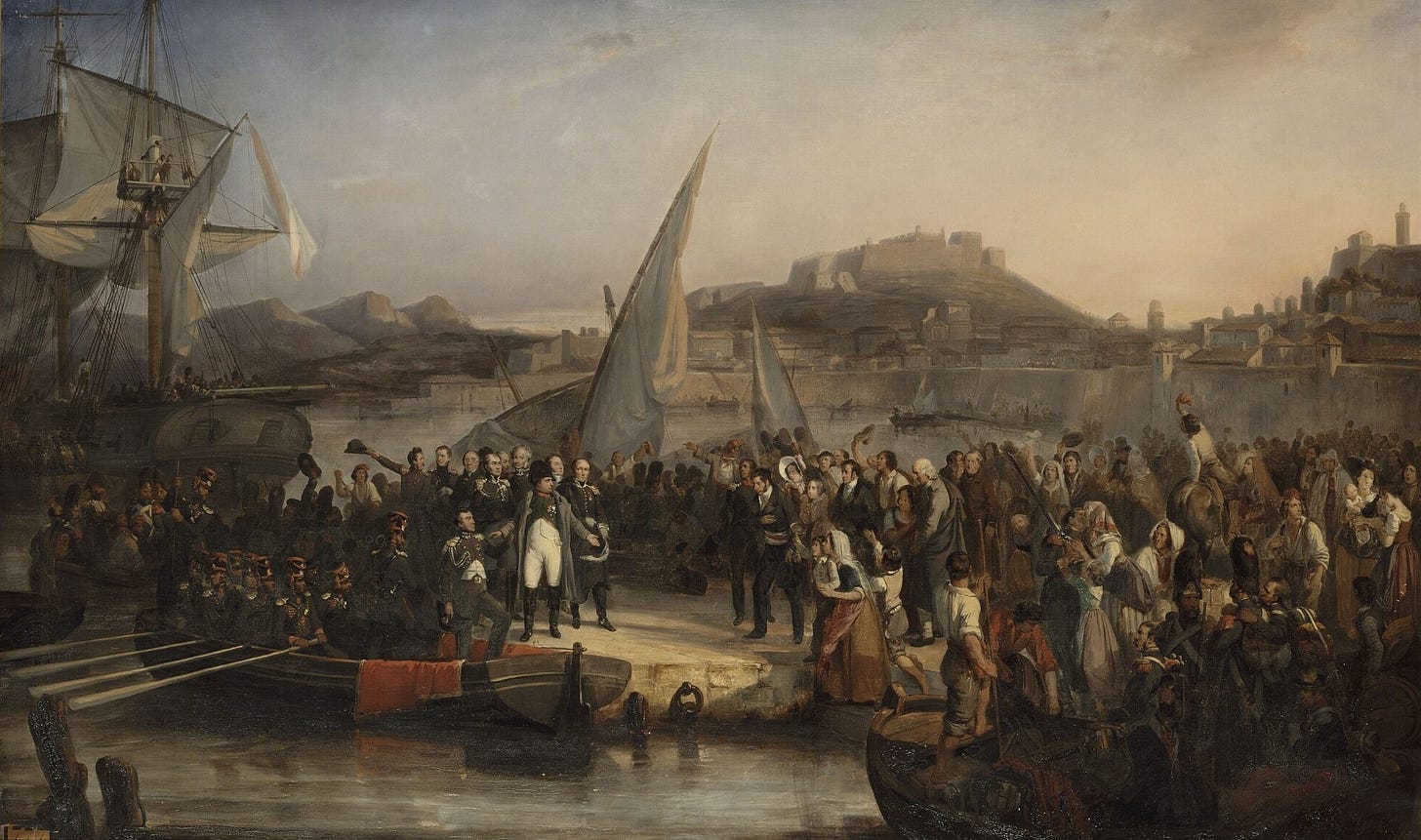TODAY IN HISTORY
February 26, 1616: The Catholic Inquisition orders Italian astronomer Galileo Galilei “to abstain completely from teaching or defending” the doctrine of Copernican heliocentrism (that the Earth revolves around the sun rather than vice versa). Church theologians deemed the doctrine heretical because it diverged from the plain text of the Bible. Galileo accepted the ruling, but in 1632 he published Dialogue Concerning the Two Chief World Systems, which involves a debate between a Copernican scholar and a defender of the Church’s position whom Galileo named “Simplicio.” The dialogue structure satisfied a papal request that he write about heliocentrism by presenting both sides of the argument, but even so Church officials felt that its conclusions were slanted toward Galileo’s point of view. They once again charged him with heresy, forced him to recant, and eventually sentenced him to house arrest.
February 26, 1815: Napoleon Bonaparte escapes his exile on the island of Elba in a bid to return to France and restore his empire. The erstwhile emperor entered Paris on March 20, chasing off the just enthroned Bourbon king, Louis XVIII, and beginning the “hundred days,” his brief revival/reunion tour. Napoleon’s attempt at a second act came to an end on June 18 at the Battle of Waterloo, in which British and Prussian armies won a decisive victory. He withdrew to Paris to find that the city had already turned against him, and abdicated on June 22. His second exile, on the more remote island of St. Helena, would prove permanent.

INTERNATIONAL
Great news! BP is pivoting to a new normal in the green economy space by circling back to its core competencies and leveraging synergies between older and newer paradigms to innovate optimized best practice-based learnings alongside key stakeholders. In other words, it’s slashing investments in renewable energy and socking that money into more oil and gas projects. It should be a real game changer. Back in 2020, BP announced plans to reduce oil and gas output by 40 percent within ten years. It then lowered that target to 25 percent in 2023 and now says it actually wants to increase oil and gas output by 2030. It still insists it wants to reach “net zero” carbon emissions by 2050, which it won’t though in complete fairness a) “net zero” is marketing bullshit and b) it was never going to reach that target anyway.
MIDDLE EAST
TURKEY
Al-Monitor’s Amberin Zaman is reporting that leaders of Turkey’s Peoples’ Equality and Democracy (DEM) Party will meet with imprisoned Kurdistan Workers’ Party (PKK) leader Abdullah Öcalan on Thursday morning and then deliver a statement from him following that session. According to Zaman the “broad consensus” is that this will message be Öcalan’s long-anticipated call for PKK fighters to lay down their arms. Nechirvan Barzani, the president of Iraq’s Kurdistan Region and one of the people who’s been brokering a PKK-Turkish government rapprochement, apparently said as much during an event in Erbil on Wednesday.
Öcalan’s message will mark the first public step in a PKK-Ankara peace process, one that Turkish President Recep Tayyip Erdoğan is reportedly hoping will stabilize his Justice and Development Party’s (AKP) political standing and help him build support for amending the Turkish constitution so that he can remain in office beyond what should be the end of his final legal term in 2028. The next step would probably be for Turkish authorities to end Öcalan’s solitary confinement. Negotiations between Turkish and Kurdish officials have been going on behind the scenes for months now and Erdoğan apparently has his right-wing Nationalist Movement Party (MHP) coalition partners on board.
Turkey and the PKK have made moves in the direction of peace before so I don’t want to make too much of this too quickly. But ending the PKK’s over 46 year insurgency would be a seismic development in the Middle East whose repercussions would touch not just Turkey but also Iraq (the PKK operates primarily out of northern Iraq) and Syria (the Syrian Democratic Forces group has ties to the PKK and Erdoğan is hoping that a peace deal with the latter will settle his grievances with the former).


